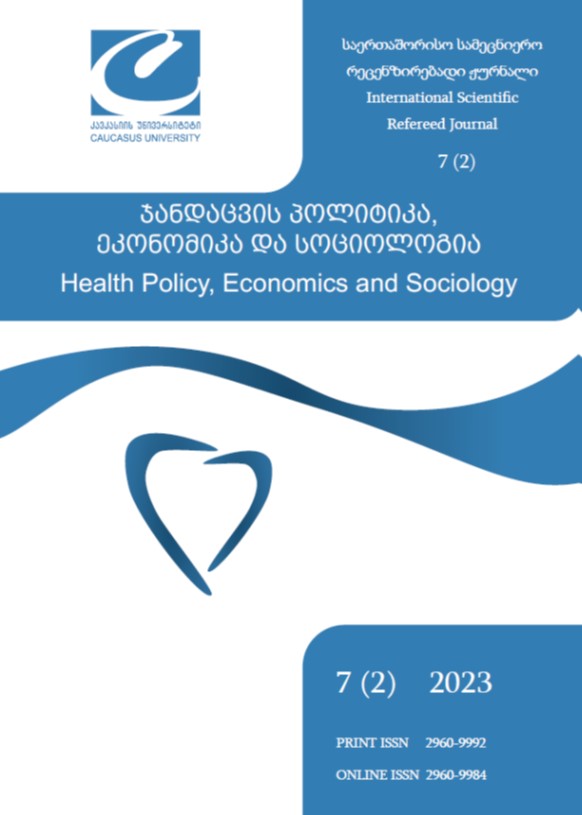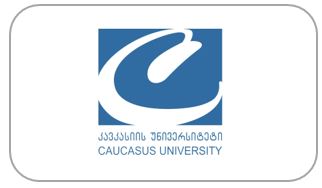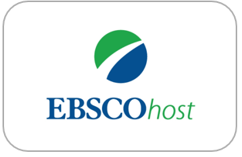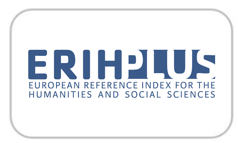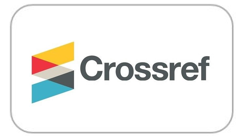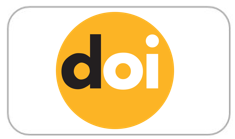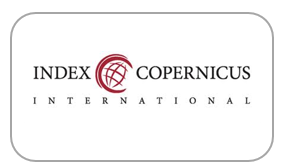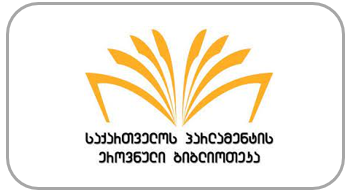საქართველოს თამბაქოს კონტროლის პოლიტიკა არომატიზირებული თამბაქოს ახალი ნაწარმების კუთხით - შედარება ევროპულ მიდგომებთან
DOI:
https://doi.org/10.52340/healthecosoc.2023.07.02.08საკვანძო სიტყვები:
თამბაქოს კონტროლის პოლიტიკა, არომატიზატორები, თამბაქოს ახალი ნაწარმიანოტაცია
შესავალი: თამბაქოს ახალი პროდუქტების, როგორიცაა გასახურებელი თამბაქო (HTP) და ელექტრონული სიგარეტი (მოხსენიებული, როგორც ნიკოტინის ელექტრონული მიწოდების სისტემები (ENDS) და უნიკოტინო ელექტრონული მიწოდების სისტემები (ENNDS)) პოპულარობა ახალგაზრდებს შორის სულ უფრო იზრდება მსოფლიოში. აღნიშნულის გამომწვევი მნიშვნელოვანი ფაქტორი თამბაქოს მარკეტინგია, მათ შორის არომატიზატორების გამოყენების გზით, რაც გავლენას ახდენს ადამიანთა, და განსაკუთრებით, ახალგაზრდების აღქმაზე. ბოლო პერიოდში თამბაქოს კონტროლის გაძლიერებისთვის საქართველოში გაწეული ძალისხმევის შედეგად, განსაკუთრებით 2017 წლის წლის შემდეგ, როდესაც საქართველოს პარლამენტმა მიიღო „ახალი თაობის“ თამბაქოს კონტროლის კანონმდებლობა, ცალკეული თამბაქოს ნაწარმის (მაგალითად სიგარეტის) მოხმარების მაჩვენებელი შემცირდა. თუმცა, 2019 წლის კვლევებიდან ჩანს, რომ მზარდია თამბაქოს ახალი ნაწარმების გამოყენების ტენდენცია ახალგაზრდებში. საქართველოს ბაზარზე თამბაქოს ახალი ნაწარმების წილმა ზრდა მეტწილად 2019 წლიდან დაიწყო, რის გამოც, ამ პერიოდის შემდეგ თამბაქოს მოხმარების მაჩვენებელი საქართველოს ახალგაზრდებში სავარაუდოდ კვლავ გაიზარდა. წინამდებარე სტატიით წარმოდგენილი კვლევის მიზანია გამოიკვლიოს/გაანალიზოს საქართველოს პასუხი ახალგაზრდებში მოწევის მზარდი მაჩვენებლის მიმართ და გამოავლინოს თამბაქოს ახალი პროდუქტების კონტროლის პოლიტიკის ხარვეზები და გამოწვევები საქართველოში, ევროპულ მიდგომებზე დაყრდნობით. მეთოდოლოგია: კვლევის ფარგლებში გამოყენებულია დოკუმენტური და აღწერითი სამართლებრივი კვლევის, შედარებითი ანალიზის, და ასევე, პოლიტიკის კვლევის მეთოდები. პოლიტიკის დოკუმენტები მოიძებნა ინტერნეტის საძიებო სისტემებში, ოფიციალურ საკანონმდებლო და სამთავრობო ვებგვერდებზე. მოიძიებული დოკუმენტები მოიცავს კანონებს, კანონქვემდებარე აქტებს, სამთავრობო დოკუმენტებს, მათ შორის, სახელმწიფო სტრატეგიებს და სამუშაო გეგმებს, სტატისტიკურ ინფორმაციებს, ოფიციალურ განცხადებებს და შეხვედრის ოქმებს. თამბაქოს კონტროლის არსებული გამოწვევების და საერთაშორისო მიდგომებთან მისი შესაბამისობის გამოსავლენად, შედარებითი ანალიზის საფუძველზე საქართველოს პოლიტიკის მახასიათებლები შედარებული იქნა ჯანმრთელობის მსოფლიო ორგანიზაციის თამბაქოს კონტროლის ჩარჩო კონვენციითა და ევროკავშირის კანონმდებლობით დადგენილ თამბაქოს ახალი პროდუქტების კონტროლის ძირითად ზომებთან (მაგ.: თამბაქოს ნაწარმის შემადგენლობის კონტროლი, რეკლამის, სპონსორობის და პოპულარიზაციის აკრძალვა, თამბაქოს ინდუსტრიის ჩაურევლობა თამბაქოს კონტროლის პოლიტიკაში, და სხვა). კვლევის შედეგები: ახალგაზრდებში თამბაქოს მოხმარების პრევენციისკენ მიმართული ეფექტური პოლიტიკის იმ მახასიათებლების ანალიზის გათვალისწინებით, რომლებიც ჯანმრთელობის მსოფლიო ორგანიზაციის და ევროკავშირის მიერაა დადგენილი, საქართველოს თამბაქოს კონტროლის კანონმდებლობა შეიცავს ბევრ ხარვეზს და ახალგაზრდების მიერ ამ პროდუქტების გამოყენების პრევენციის პოლიტიკა სუსტია. ქართული კანონმდებლობა არომატიზატორების გამოყენების გზით თამბაქოს ნაწარმის მარკეტინგის აკრძალვას არ ითვალისწინებს. მოქმედი რეგულირება თამბაქოს არც ერთ პროდუქტში არ ზღუდავს არომატიზატორების/დანამატების გამოყენებას. დადგენილია მხოლოდ სიგარეტებიდან გამოფრქვეული ნივთიერებების ზღვრული ოდენობები და ნიკოტინის მაქსიმალური ოდენობა ნიკოტინის შემცველი ელექტრონული სიგარეტის სითხეებისთვის, თუმცა ამ მოთხოვნებთან შესაბამისობა არასოდეს შემოწმებულა. არ არსებობს ადგილობრივი ლაბორატორია, რომელიც შეამოწმებს თამბაქოს რომელიმე ნაწარმის შემადგენლობას. არც უცხო ქვეყნის ლაბორატორიაში გაგზავნილა ოდესმე თამბაქოს რომელიმე ნაწარმის ნიმუშები. თამბაქოს კონტროლის პოლიტიკის დიდი გამოწვევაა უნიკოტნო ელექტრონული სიგარეტები, რომელიც არ განიხილება თამბაქოს ნაწარმად და მათზე არ ვრცელდება თამბაქოს კონტროლის კანონმდებლობის მოთხოვნები. ქვეყანაში თამბაქოს კონტროლის პოლიტიკის საკითხებში თამბაქოს ინდუსტრიის ჩარევის საგანგაშოდ მაღალი ინდექსის გათვალისწინებით, სავარაუდოა, რომ თამბაქოს ახალ პროდუქტზე კონტროლის პოლიტიკის დანერგვას დიდი წინააღმდეგობა შეხვდება, მით უფრო იმის გათვალისწინებით, რომ ბოლო წლებში ჩატარებულა კვლევა ახალგაზრდების მიერ თამბაქო ახალი ნაწარმის მოხმარების მაჩვენებლის გამოსავლენად. დასკვნა: ეს კვლევა წარმოადგენს პირველ შეფასებას საქართველოში იმის შესახებ, თუ როგორ რეაგირებს ქვეყანა თამბაქოს ახალი პროდუქტების (ელექტრონული სიგარეტი, გასახურებელი თამბაქო) მზარდ პოპულარობაზე. საკითხის ანალიზმა აჩვენა, რომ საქართველოს თამბაქოს კონტროლის პოლიტიკა ძირითადად მორგებულია თამბაქოს ტრადიციულ პროდუქტებზე, ხოლო ახალი პროდუქტები, ცალკეული რეგულაციების ფარგლებს მიღმაა. თამბაქოს ინდუსტრიამ კარგად ისარგებლა პოლიტიკის ხარვეზებით და საქართველო ბოლო წლებში თამბაქოს ახალი ნაწარმის ინდუსტრიისთვის გახდა ხელსაყრელი ბაზარი. კვლევის ფარგლებში გამოვლენილი დასკვნები კარგი ინსტრუმენტია გადაწყვეტილების მიმღებებისთვის - შექმნან არომატიზირებული თამბაქოს ახალი ნაწარმის ეფექტური რეგულირება და აღსრულების მექანიზმი საქართველოში, რადგან არსებული რეგულირების ხარვეზები სავარაუდოდ გამოიწვევს თამბაქოს მოხმარების მაჩვენებლის ზრდას, განსაკუთრებით ახალგაზრდებში
წყაროები
• „თამბაქოს კონტროლის შესახებ“ საქართველოს კანონი. (2010). https://matsne.gov.ge/ka/document/view/1160150?publication=10 (წვდომის თარიღი 2023 წლის 27 ოქტომბერი).
• თამბაქოს კონტროლის სახელმწიფო სტრატეგია 2021-2025. https://www.matsne.gov.ge/ka/document/view/5192453?publication=0 (წვდომის თარიღი 2023 წლის 27 ოქტომბერი).
• თამბაქოს კონტროლის სამოქმედო გეგმა 2021-2023. https://www.matsne.gov.ge/ka/document/view/5192453?publication=0 (წვდომის თარიღი 2023 წლის 27 ოქტომბერი).
• კანონპროექტი „თამბაქოს კონტროლის შესახებ“ საქართველოს კანონში ცვლილების შეტანის თაობაზე, N07-3/592/8, https://info.parliament.ge/#law-drafting/12109 (წვდომის თარიღი 2023 წლის 27 ოქტომბერი).
• საქართველოს შრომის, ჯანმრთელობისა და სოციალური დაცვის მინისტრის ბრძანება №01-20/ნ. (01.05.2021). www.matsne.gov.ge (წვდომის თარიღი 2023 წლის 27 ოქტომბერი).
• საქართველოს მთავრობის N150 დადგენილება საქართველოში სარეალიზაციოდ განკუთვნილი ფილტრიანი და უფილტრო სიგარეტებისგან გამოფრქვეული ნივთიერებების ზღვრულად დასაშვები ნორმების, მათი გაზომვის და რეგულირების წესების შესახებ. (06.03.2020). www.matsne.gov.ge (წვდომის თარიღი 2023 წლის 27 ოქტომბერი).
• საინვესტიციო შემთხვევა, UNDP, NCDC. 2018;
• ტაქსებში მოწევის აკრძალვის საზოგადოებრივი მხარდაჭერის კვლევა, NCDC. 2020;
• Brandt A. M. (2012). Inventing conflicts of interest: a history of tobacco industry tactics. American journal of public health, 102(1), 63–71. https://doi.org/10.2105/AJPH.2011.300292 (წვდომის თარიღი 2023 წლის 27 ოქტომბერი).
• Conference of the Parties to the WHO Framework Convention on Tobacco Control Sixth session Moscow, Russian Federation. (13–18.10.2014). Electronic nicotine delivery systems Report by WHO. https://apps.who.int/gb/fctc/PDF/cop6/FCTC_COP6_10Rev1-en.pdf (წვდომის თარიღი 2023 წლის 27 ოქტომბერი).
• Conference of the Parties to the WHO Framework Convention on Tobacco Control Eighth session Geneva, Switzerland. (1−6.10.2018). Decision FCTC/COP8(22) Novel and emerging tobacco products. https://fctc.who.int/publications/m/item/fctc-cop8(22)-novel-and-emerging-tobacco-products (წვდომის თარიღი 2023 წლის 27 ოქტომბერი).
• Directive 2014/40/EU of the European Parliament and of the Council (03.04.2014) https://eur-lex.europa.eu/legal-content/EN/TXT/?uri=OJ%3AJOL_2014_127_R_0001 (წვდომის თარიღი 2023 წლის 27 ოქტომბერი).
• Directive 2022/2100 of the European Commission. (29.06.2022). https://eur-lex.europa.eu/legal-content/EN/TXT/?uri=celex%3A32022L2100 (წვდომის თარიღი 2023 წლის 27 ოქტომბერი).
• European Network for Smoking Prevention. (2019). Emerging and Novel products factsheet. https://ensp.network/wp-content/uploads/2019/08/Emerging-and-Novel-products-factsheet-2019.pdf (წვდომის თარიღი 2023 წლის 27 ოქტომბერი).
• ESPAD Georgia. (2019). http://www.espad.org/sites/espad.org/files/2020.3878_EN_04.pdf Forbs.ge (24.07.2020) (წვდომის თარიღი 2023 წლის 27 ოქტომბერი).
• Euronews. (29/06/2022) EU proposes ban on sale of flavored heated tobacco products. https://www.euronews.com/my-europe/2022/06/29/vaping-eu-proposes-ban-on-sale-of-flavoured-heated-tobacco-products; (წვდომის თარიღი 2023 წლის 27 ოქტომბერი).
• European Commission (15.6.2022) REPORT FROM THE COMMISSION on the establishment of a substantial change of circumstances for heated tobacco products in line with Directive 2014/40/EU. https://eur-lex.europa.eu/legal-content/EN/TXT/?uri=CELEX%3A52022DC0279&qid=1655456179686 (წვდომის თარიღი 2023 წლის 27 ოქტომბერი).
• Forbs.ge (09.10.2023) ინვესტიცია უკვამლო მომავლისთვის. https://forbes.ge/philip-morris-georgia-launches-iqos-in-georgia/ (წვდომის თარიღი 2023 წლის 27 ოქტომბერი).
• GOV.UK (02.11.2022) E-cigarettes: regulations for consumer products https://www.gov.uk/guidance/e-cigarettes-regulations-for-consumer-products (წვდომის თარიღი 2023 წლის 27 ოქტომბერი).
• Krishnan-Sarin, S., O'Malley, S. S., Green, B. G., & Jordt, S. E. (2019). The science of flavour in tobacco products. World Health Organization technical report series, 1015, 125–142.
• Netherland Food and Consumer Product Safety Autority. (უთარიღო) Regulation of the State Secretary for Health, Welfare and Sport of 22 November 2022, reference 3456548-1038502-WJZ, amending the Tobacco and smoking products regulation to regulate flavors for e-cigarettes. https://www.nvwa.nl/onderwerpen/vapes-en-e-sigaretten/verbod-op-vapes-met-een-smaakje (წვდომის თარიღი 2023 წლის 27 ოქტომბერი).
• National Center for Chronic Disease Prevention and Health Promotion (US) Office on Smoking and Health. (2012). Preventing Tobacco Use Among Youth and Young Adults: A Report of the Surgeon General.. Chapter 4. https://www.ncbi.nlm.nih.gov/books/NBK99236/ (წვდომის თარიღი 2023 წლის 27 ოქტომბერი).
• Philip Morris Georgia Launches IQOS in Georgia https://forbes.ge/philip-morris-georgia-launches-iqos-in-georgia/ (წვდომის თარიღი 2023 წლის 27 ოქტომბერი).
• STOP a global tobacco industry watchdog, 2022, Flavors (Including Menthol) in Tobacco Products. https://exposetobacco.org/resource/menthol-flavors/ (წვდომის თარიღი 2023 წლის 27 ოქტომბერი).
• The Global Tobacco Industry Interference Index report, 2023, https://globaltobaccoindex.org/report-summary (წვდომის თარიღი 2023 წლის 27 ოქტომბერი).
• UN TobaccoControl, WHO, FCTC. (უთარიღო). European Union: Ban on flavored tobacco product. https://untobaccocontrol.org/impldb/european-union-ban-on-flavoured-tobacco-products/ (წვდომის თარიღი 2023 წლის 27 ოქტომბერი).
• World Health Organization. (2023). Tobacco Overview. https://www.who.int/health-topics/tobacco#tab=tab_1(წვდომის თარიღი 2023 წლის 27 ოქტომბერი).
• World Health Organization Framework Convention on Tobacco Control (WHO FCTC) (2005). https://fctc.who.int/who-fctc/overview (წვდომის თარიღი 2023 წლის 27 ოქტომბერი).
• World Health Organization. (31.07.2023). Key facts on tobacco. https://www.who.int/news-room/fact-sheets/detail/tobacco (წვდომის თარიღი 2023 წლის 27 ოქტომბერი).
• World Health Organization. (2017) Partial guidelines Framework Convention on Tobacco Control Regulation of the contents of tobacco products and regulation of tobacco product disclosures for implementation articles 9 and 10. file:///C:/Users/User/Downloads/partial-guidelines-for-implementation-article-9-10-en.pdf (წვდომის თარიღი 2023 წლის 27 ოქტომბერი).
• World Health Organization, 2023 GLOBAL PROGRESS REPORT, 22.10.2023 https://fctc.who.int/publications/m/item/2023-global-progress-report (წვდომის თარიღი 2023 წლის 27 ოქტომბერი).
• WHO. 2011. Guidelines for implementation Article 5.3, Article 8, Articles 9, and 10 Article 11, Article 12, Article 13, Article 14 of FCTC. https://iris.who.int/bitstream/handle/10665/75218/9789241501316_eng.pdf (წვდომის თარიღი 2023 წლის 27 ოქტომბერი).
ჩამოტვირთვები
გამოქვეყნებული
როგორ უნდა ციტირება
გამოცემა
სექცია
ლიცენზია

ეს ნამუშევარი ლიცენზირებულია Creative Commons Attribution-ShareAlike 4.0 საერთაშორისო ლიცენზიით .
